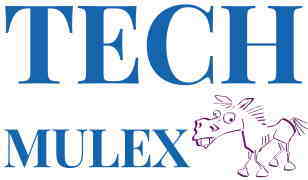Google’s market power is growing – but so is the desire for alternatives. Data protection, sustainability and digital independence are becoming increasingly important. Whether for more privacy or to support green projects: Here are the best Google alternatives where you can also find the latest Slotsgem login.
Tech giants such as Google and Meta are increasingly being criticized for holding too much market power and exploiting it. This concerns, for example, the handling of personal data and its commercial exploitation.
For many users, however, there seems to be no alternative to the offerings from Silicon Valley and so, for better or worse, they stick with the familiar applications. The good news is that there are alternatives, we just have to use them. In this article, we present the best alternative search engines for more sustainability, more data protection and for AI-based searches.
Just try out whether the respective search results are a real alternative to Google for your purposes.
1. sustainable search engines
Search engines in this category place particular emphasis on environmental and climate protection and social responsibility. For example, they finance reforestation projects or donate part of their revenue to charitable organizations.
Good Search: Sustainable search engine with a social focus
Good Search is a sustainable search engine that is based on independent technology and donates a portion of its revenue to charitable organizations. Users choose which projects they want to support and thus achieve a direct social impact.
Donates a portion of advertising revenue to charitable organizations
Privacy-friendly search
Sustainable approach with a social focus
Does not display personalized advertising to protect users’ privacy
Ecosia.org: the climate-neutral Google alternative
The “green search engine” Ecosia is not only CO2-neutral, but is now even climate-positive. According to the company, its solar panels generate twice as much energy as the search queries consume. Ecosia uses 100 percent of its profits for climate and environmental protection, in particular for tree planting projects around the world. Since 2024, Ecosia has been working with Qwant to build a European search engine infrastructure.
certified B-corporation
owned by itself (“purpose company”)
donates a large part of its profits
own solar panels for 100% renewable energy
uses Bing, but is working on European independence
increased privacy features
2. privacy-friendly search engines
These search engines focus on protecting privacy and do not use personalized advertising or tracking.
Qwant.com: secure EU search engine with green energy
Qwant is a European search engine based in France that places particular emphasis on data protection and does not display personalized advertisements. It uses servers that are powered by renewable energy. In 2024, Qwant entered into a partnership with Ecosia to develop an independent European search platform.
strong privacy features
servers in France (EU)
no search history storage
https://www.qwant.com
Startpage: Privacy search engine
Startpage is based on Google’s search results, but anonymizes search queries and does not store user data. Due to the takeover by a US advertising company in 2019, there are data protection concerns, but the company continues to emphasize its independence and level of privacy protection.
anonymized Google search results
EU server selectable
Proxy function
https://www.startpage.com
DuckDuckGo: Search engine with a focus on privacy
DuckDuckGo is a popular alternative for users who value data protection. The search engine does not store any IP addresses or search history and uses its own search technology in combination with other sources. However, the servers are located in the USA, which can be viewed critically from a data protection perspective.
strong privacy features
own search technology
no storage of user data
https://www.duckduckgo.com
MetaGer: German meta search engine
MetaGer combines search results from various sources and attaches great importance to data protection. The servers are located in Germany and are powered by 100% green electricity. The meta search engine allows users to limit the number of search sources used in order to save energy.
uses several search sources
Servers in Germany with green electricity
Proxy server for anonymized searches
free of
charge
https://www.metager.de
3. AI-powered search engines
These search engines use artificial intelligence to customize search results and provide information more quickly. This makes them more of an alternative to ChatGPT. However, OpenAI’s language model in particular is itself developing into a Google alternative, but pays little attention to data protection.
Brave Search: Independent search engine with a focus on data protection
Brave Search is a search engine developed from scratch that uses its own index and is not dependent on Google or Bing. It offers an ad-free version and attaches great importance to data protection.
Independent search index
No storage of user data
Ad-free option available
https://search.brave.com
You.com: AI-powered search engine with data protection
You.com combines classic search with AI-powered functions such as chatbots and image generators. Users can personalize their search experience while retaining control over their data.
AI-powered search
Strong privacy options
Customizable search
https://you.com
Which Google alternative is right for you?
Choosing the right search engine depends on your individual priorities. If you want to support sustainable projects, you can opt for Ecosia or Good Search. Purely privacy-sensitive users will find secure alternatives in Qwant, Startpage, DuckDuckGo or MetaGer. Those interested in modern AI-supported solutions can try You.com or Brave Search.
The search engine landscape is constantly evolving. Some alternatives such as Ecosia and Qwant are working on an independent European search engine infrastructure. Others, such as Brave Search, offer a completely independent search technology without dependence on Google or Bing.
